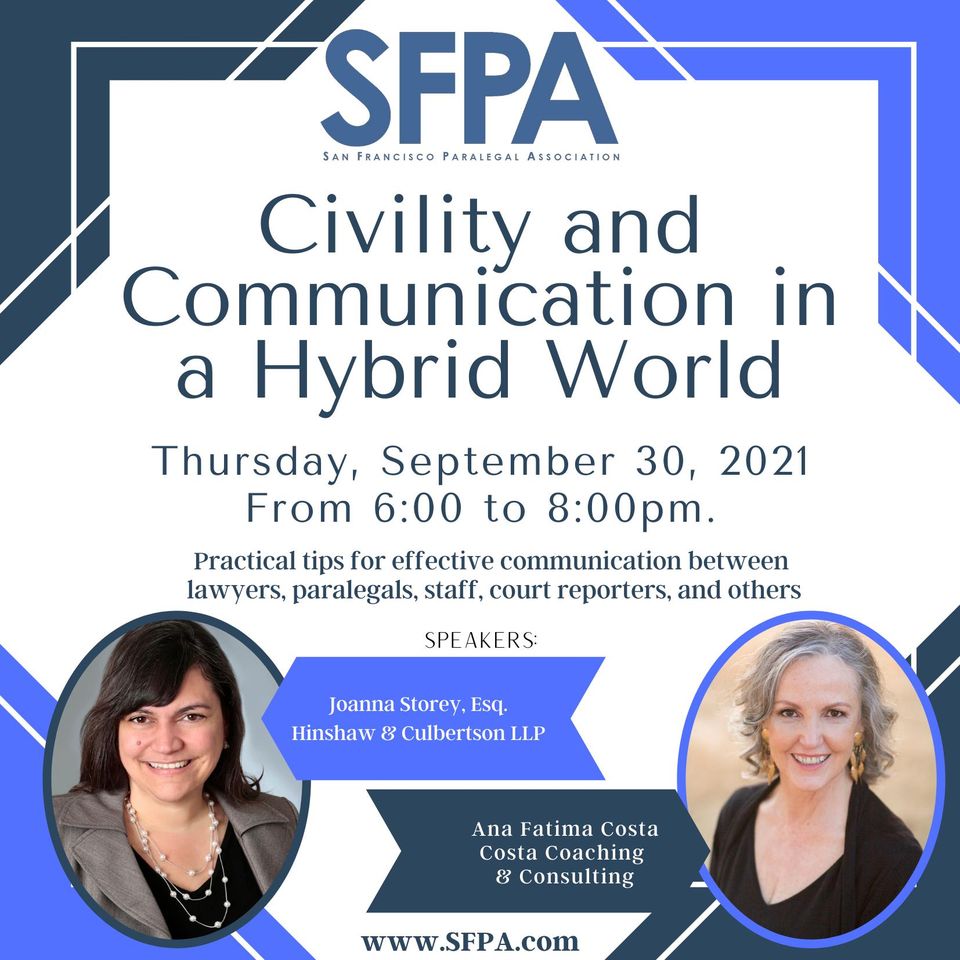
- This event has passed.
Civility & Communication in a Hybrid World
September 30, 2021 @ 8:00 PM - 10:00 PM
$5.00
SUMMARY
As we approach a hybrid workplace, this is a good time to pause and reflect on civility and communication.
All too often, we jump to conclusions and communicate with others based on judgments and assumptions, which result in misperceptions, misunderstandings, and conflict.
Example:
Attorney (in the office) calls Paralegal (remote) to discuss an important project. S/he was in the bathroom and calls back 10 minutes later. Attorney’s initial reaction is swift:
“I told you this remote work arrangement wouldn’t work! You must be physically in the office from now on so I can reach you at a moment’s notice!”
Paralegal is embarrassed to tell the attorney the reason why they missed the call. Attorney assumes they were running a personal errand.
Now Paralegal is considering whether to quit because mandatory in-person work is a deal breaker.
Tempers flare, and their business relationship is at risk.
In this session, we explore how to reframe your mindset to listen, observe, and communicate civilly and effectively.
LEARNING OUTCOMES
#civility#communication#empathy#SFPA
- What civility and ethics guidelines apply to lawyers, paralegals, and court reporters
- How to make observations without judgment and requests instead of demands
- Minimize stress, frustration, and disappointment through clear communication
- Own your story to speak up for yourself and your needs while maintaining civility
- How to not take things personally or make assumptions, and always do your best